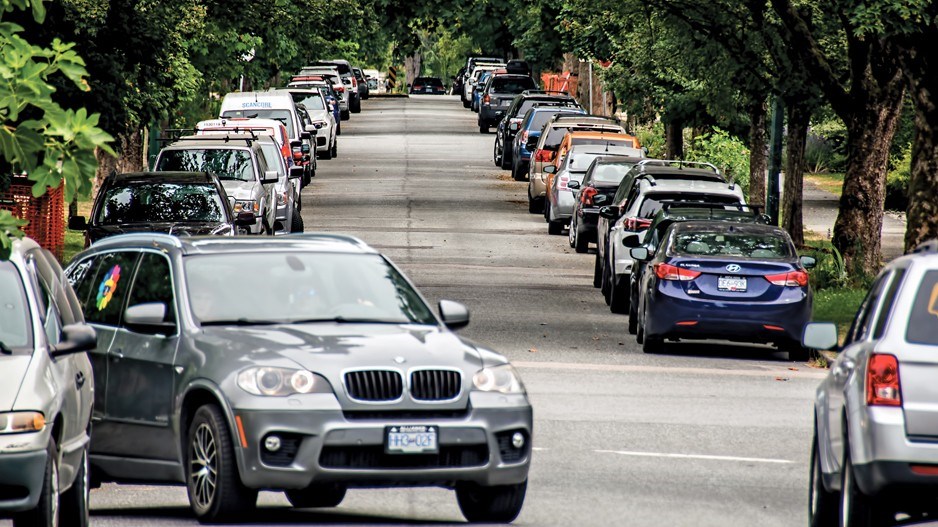As a public opinion survey on Vancouver’s controversial Climate Emergency Parking Program proposal closes, top urban planners fear the measure would create new “paywalls” around a city already struggling with affordability.
The City of Vancouver is not tipping its hand about the feedback it has received in the survey, which closed on July 5. In a written statement, parking management manager Alina Cheng said public engagement is continuing on the parking proposal, and the findings of the survey will not be released until September.
The proposal would require residents who park on neighbourhood streets to pay for a permit. Charges of up to $1,000 a year would be levied on more carbon-intensive new vehicles like trucks.
Andy Yan, director of the City Program at Simon Fraser University, said the parking program, when levied across the city, would disproportionately hurt residents from certain neighbourhoods and income demographics. It would essentially create a paywall that would prevent people who aren’t well off from settling, working and starting businesses within Vancouver city limits.
“It’s really about the question, ‘Do these policies understand the city it is trying to serve?’” Yan said. “There’s the urgency of the climate crisis, the principles of climate justice and the realities of when and how people get to work in Vancouver.”
The City of Vancouver said pollution surcharges for gas-guzzling vehicles model year 2023 or later would “encourage people who are buying new vehicles to choose clean options, reduce air and carbon pollution, and help fund climate emergency actions.” The aim of the plan is to cut the city’s carbon pollution in half by 2030.
But Yan said the new proposed parking permit fees may not achieve those ends.
Data he compiled on Vancouver commuter transportation shows that while the percentage of people who drive citywide is 45%, that proportion spikes to as high as 69% in neighbourhoods like Killarney and Kerrisdale.
And while the city might presume that drivers in wealthier neighbourhoods such as Shaughnessy and Dunbar-Southlands can switch to electric or hybrid vehicles, Yan said the new parking fees would also hit other communities with lower income levels, such as Killarney (69% car-dependent), Victoria-Fraserview (67%) and Hastings-Sunrise (62%). He added that statistics also show workers in sectors like construction (62%), transportation/warehousing (59%) and wholesale trade (56%), who are more likely to depend on trucks for their jobs and work irregular hours in locations that preclude transit use, will also be disproportionately hit be parking surcharges proposed by the city.
Yan said he was also concerned that, when people in working-class neighbourhoods are faced with the surcharges, they will not be able to change their driving habits because transit, biking or walking aren’t viable options. The result would be higher city revenue but no pollution reduction.
It would also add costs to small-business owners and entrepreneurs in the city as well as people who drive to other Metro Vancouver cities for work, essentially becoming “a way of clearing out those in the working class and middle-income levels from these neighbourhoods and replacing them with those who can afford to live in Vancouver,” Yan said.
The city has said the new parking rates would fund approximately 25% of “climate emergency action plan needs,” covering about $60 million in costs from 2022 to 2025 for items such as better walking and cycling networks, improved bus service, expanded electric car charging infrastructure and changes to renewable sources of energy for public buildings.
It says owners of existing cars would not face any surcharges, because they apply only to models 2023 and beyond. If approved, the plan is slated to be implemented in 2022. •




